Entertainment
for Diners

Commercial success for the phonograph
and recorded sound could be said to have begun on November 23, 1889
when the first jukebox was introduced at the Palais Royal Saloon in
San Francisco.The 1890's coin-in-the-slot phonographs would expand
into other public spaces like hotels, ferry and railroad stations,
restaurants and phonograph parlors where multiple phonographs were
available for listening.
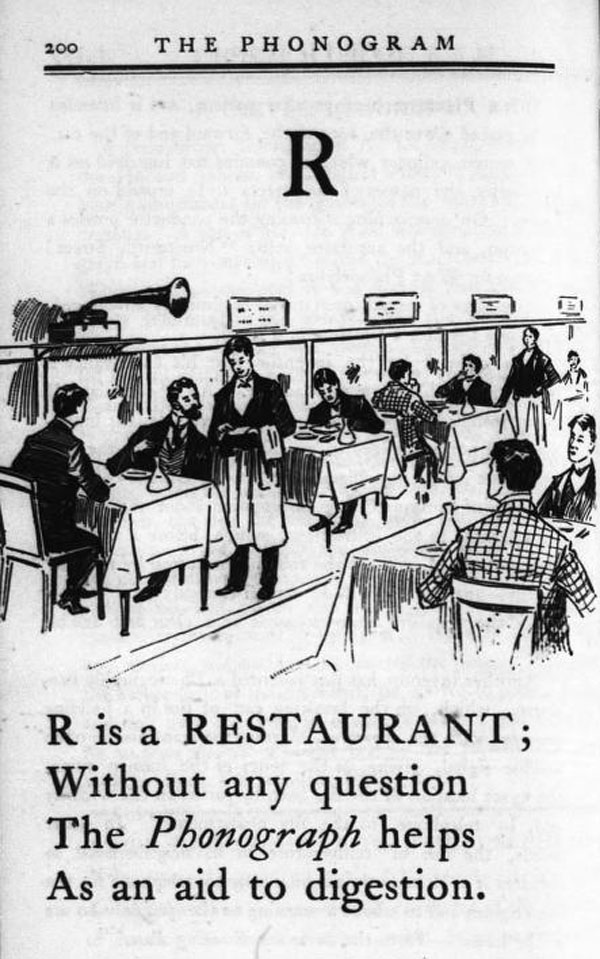
The Phonogram,
April 1901
An article from The Talking Machine
World in May 15, 1907 highlighted the business advantage of providing
talking machine entertainment in quick lunch counters.
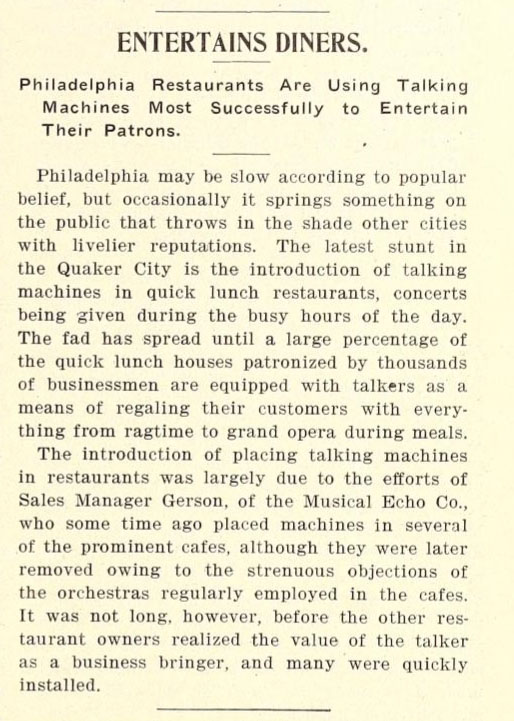
The Talking Machine
World, May 15, 1907

1909 Drug Store with soda fountain and
at least two phonographs in back section - entertainment and retail
sales? (PM-2122)
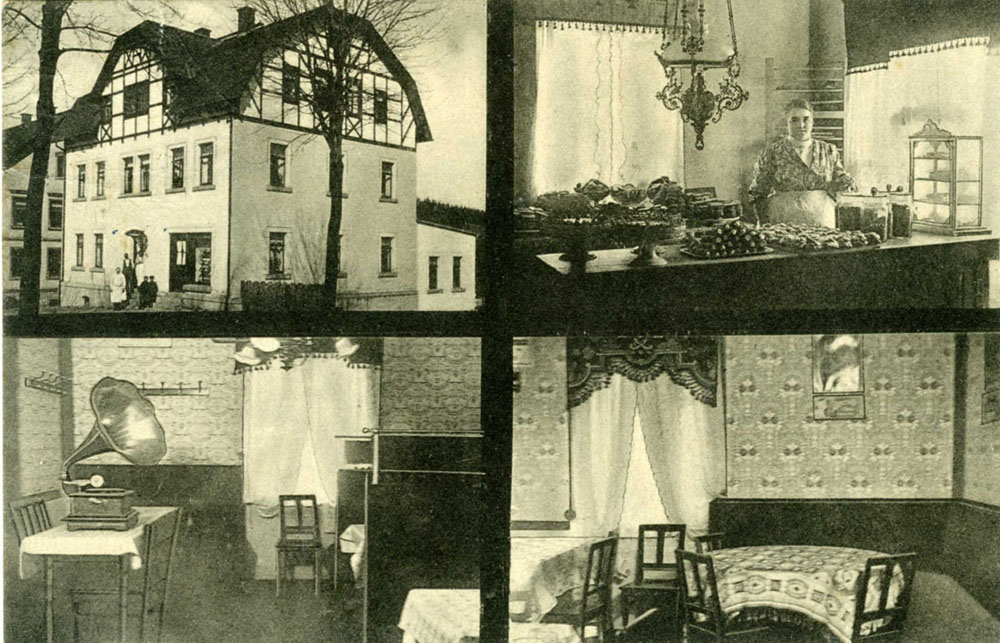
Postcard of the Alfred
Gerlach Hotel and Bakery with dining area, Germany circa 1920
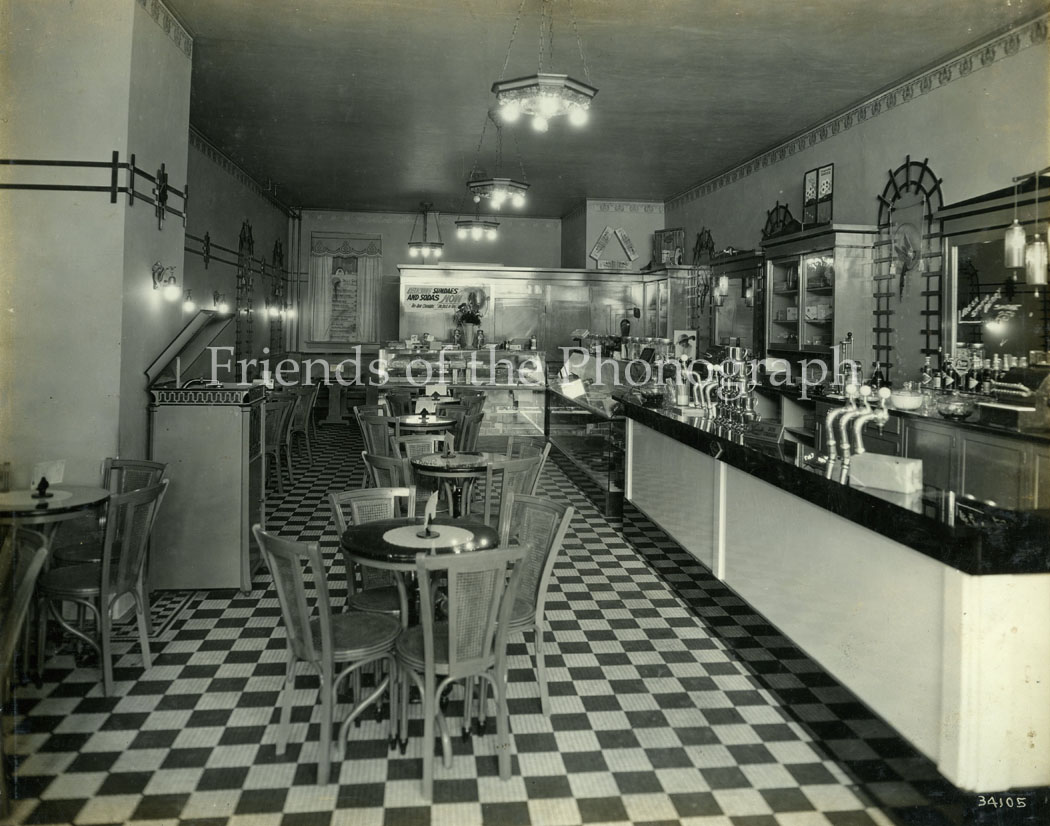
Photograph of Wisconsin
Sweetshop circa 1915 with Edison Diamond Disc Phonograph ©2018
Phonographia.com

Edison Phonograph
Monthly, April 1915
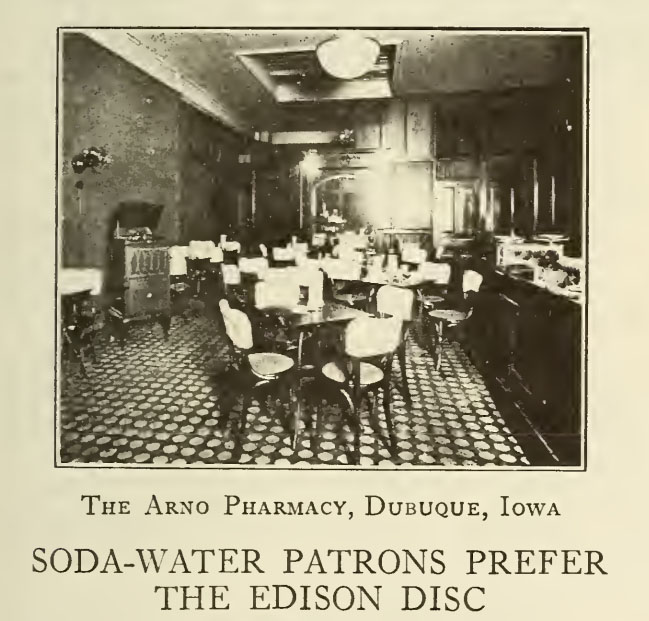
Edison Phonograph
Monthly, September 1915
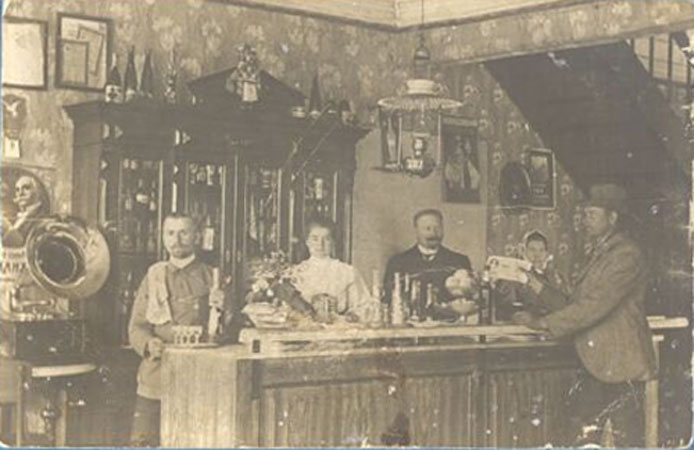
Russia Restaurant RPPC,
circa 1912


1909 Pathé Concert
No. 3 coin-operated phonograph for cafes and public-space entertaining
(Courtesy Historadio
Magazine, April 2016)
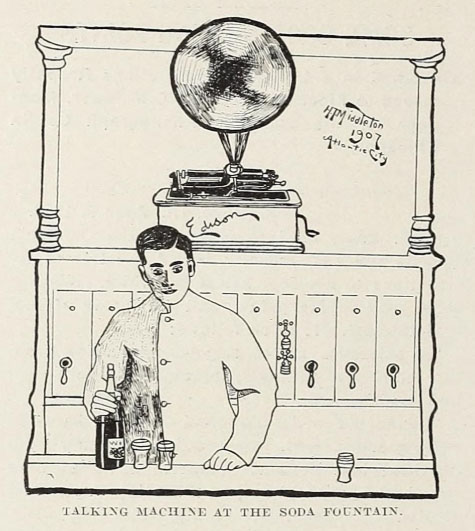
Talking Machine at
the Soda Fountain, The Talking Machine World, June 1908

Guests in Bosnian coffee
house listen to gramophone, postcard ca. 1920

Soda fountain inside Hood
River Drug Store. Believed to be Kresse Drug Store. At the rear of
the store Victrolas and records were sold. (Note Victrolas &
Records sign). Photo courtesy of The
History Museum of Hood River County.
Recorded music would continue to be
heard in public places but in the 1930's through the 1960's the jukebox
became a major performer for restaurants and burger joints and soda
shops throughout the USA.

A Record with their
Meal - Diners making a tabletop coin operated music selection.
1941 (News/media agency archive file reprint) (1)

For good entertainment
"The Sign of the Musical Note," Wurlitzer Music, The
Saturday Evening Post, 1946.

Wurlitzer Music, 1947
magazine advertisement
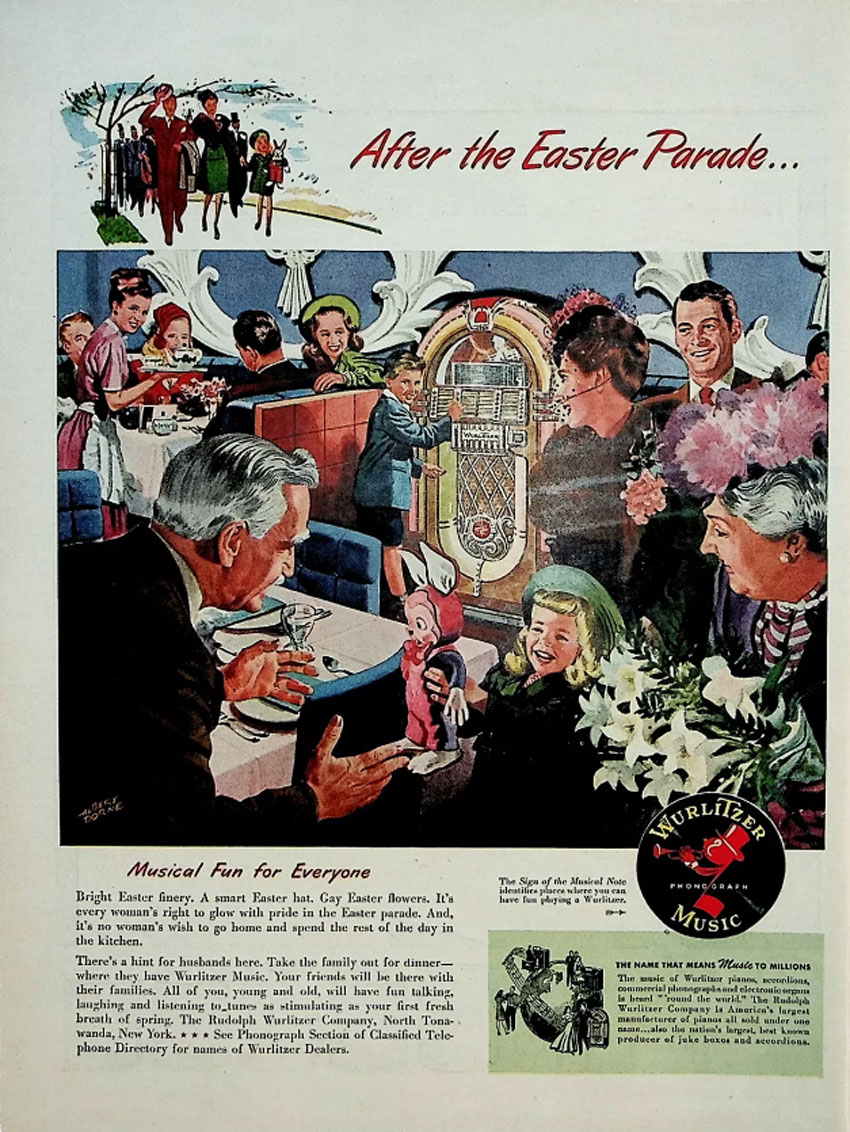
Wurlitzer Music, 1947
Easter advertisement
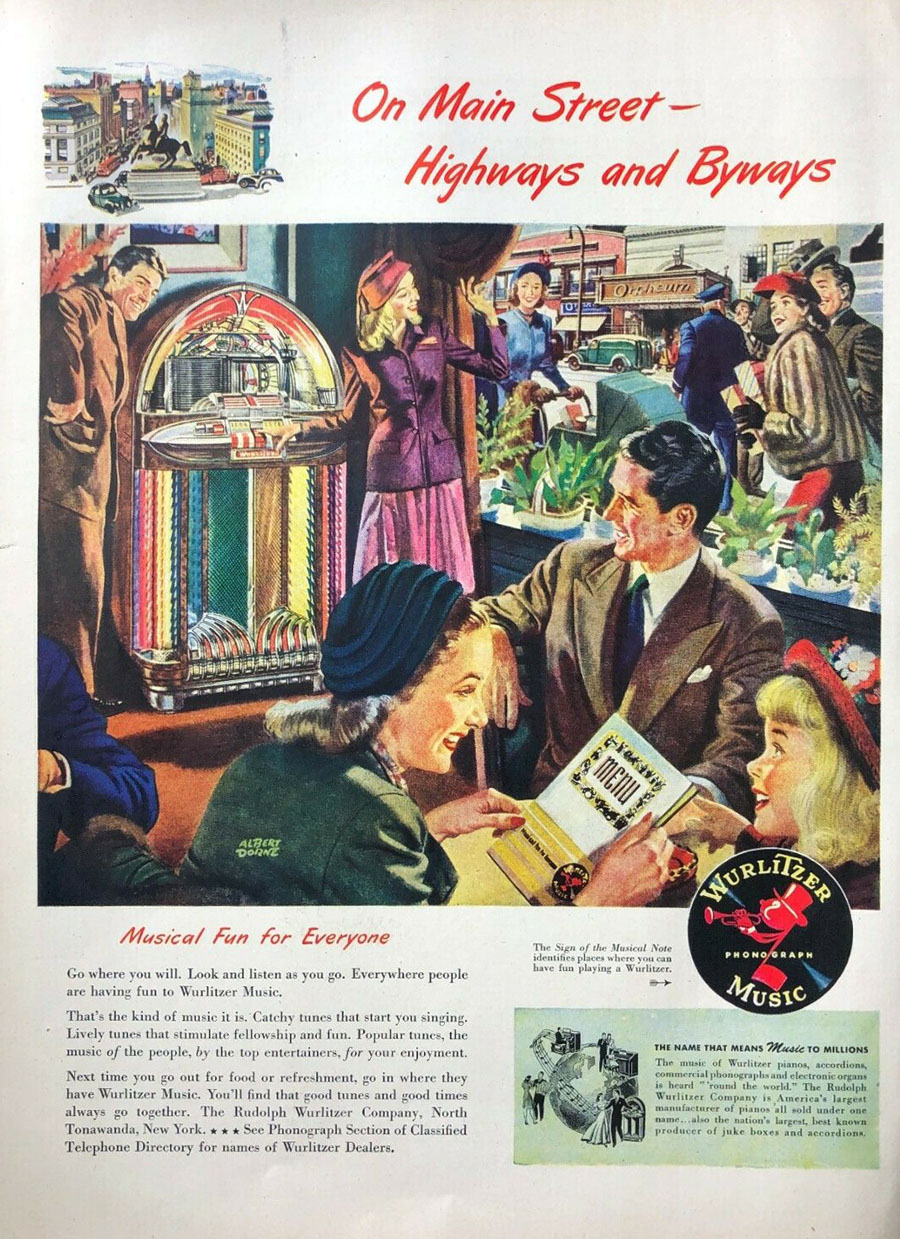
Wurlitzer Music, 1948
magazine advertisement

"Hand the waiter
some coins to put in the phonograph for you." Wurlitzer Music,
c. 1948 table music card.
An early competitor to the jukebox was
coin-operated player pianos like the Peerless Coin Operated piano.
Advertised in The Talking Machine World, December 15, 1907,
it was said there "is no medium on earth to compare with these
instruments...Our Peerless has been tried in cafes, billiard parlors,
drug stores, candy stores, etc. and in every case has it proven a
success."


Multiple TVs became the
common format for the entertainment of patrons in restaurants and
sports bars in the 21st century.

Phonographia
.
|